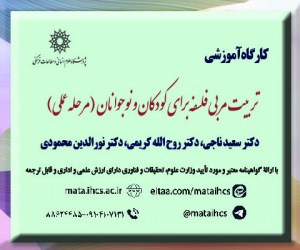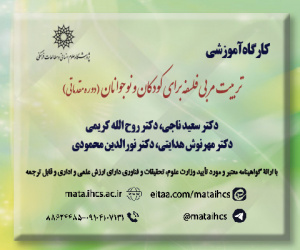مطالعه جامعه شناختی تحولات مجازات ها در افغانستان در پرتو اندیشه های حقوق بشری (1400- 1381) (مقاله علمی وزارت علوم)
درجه علمی: نشریه علمی (وزارت علوم)
آرشیو
چکیده
حقوق بشر به ارزش ها و هنجارهایی اشاره دارد که متعلق به ذات انسان، بدون توجه به وابستگی های قومی، زبانی، ملیتی و مذهبی است. این ارزش ها تأثیرات مهمی بر ساختار سیاسی و حقوقی افغانستان در پی داشته است. یکی از این موارد تأثیر اندیشه های حقوق بشری بر نهاد کیفر است. پژوهش حاضر با استفاده از روش تحقیق توصیف و تحلیل گفتمانی، به این مسئله پرداخته است که اندیشه ها و گرایش های حقوق بشری چه تأثیری بر تحولات مجازات ها در افغانستان داشته است. نتایج بیانگر آن است که مجازات در افغانستان تاریخ پرفرازونشیبی را طی کرده است؛ گاهی در اوج خشونت گرایی کیفری و زمانی در پایین ترین درجه کیفرهای خشونت آمیز سیر کرده است. این مسئله متأثر از علل و عوامل متعددی است که یکی از آن موارد مسئله حقوق بشر و گرایش های حقوق بشری است. هر زمانی که گفتمان حقوق بشر چه به صورت صوری و ظاهری و چه به صورت واقعی وارد گفتمان حقوق کیفری افغانستان شده، تغییرات مقطعی و ظاهری در روش اعمال و اجرای مجازات ها نیز نمایان شده است. حذف کیفر شلاق از قوانین کیفری، محدودیت در موارد و روش اعمال کیفر مرگ و حرکت به سمت کیفرهای جایگزین حبس از مهم ترین تحولات کیفرها در افغانستان محسوب می شوند که به دلیل فشارهای جامعه بین المللی و نهادهای حقوق بشری از یک سو، تغییر نسبی ساختار سیاسی، حقوقی، فرهنگی و اجتماعی از سوی دیگر، به مرورزمان و به ویژه طی دو دهه اخیر به وجود آمده است.A sociological study of punishment Developments in Afghanistan in the light of human rights ideas (2002-2021)
Human rights refer to values and norms that belong to human nature, regardless of ethnic, linguistic, national or religious affiliations. These values have had important effects on Afghanistan's political and legal structure. One of these is the impact of human rights ideas on the Penal Institution. The present study uses the method of descriptive analysis and discourse analysis to examine the impact of human rights ideas and tendencies on the changes in punishment in Afghanistan. The results indicate that punishment in Afghanistan has gone through a long history, sometimes at the height of criminal violence and at times the lowest level of violent crimes. This issue is affected by many causes and factors, one of which is the issue of human rights and human rights tendencies. Whenever the human rights discourse has entered the Afghan criminal law discourse either formally or externally, there has also been a temporary and apparent change in the way of imposing and executing punishments. The elimination of flogging from criminal law, restrictions on cases and methods of death penalty and moving towards alternative imprisonment punishments are among the most important developments of penal punishment in Afghanistan, which, due to the pressures of the international community and human rights institutions, on the one hand, has caused a relative change in political, legal, cultural and social structure on the other hand, and especially during the last two decades.



